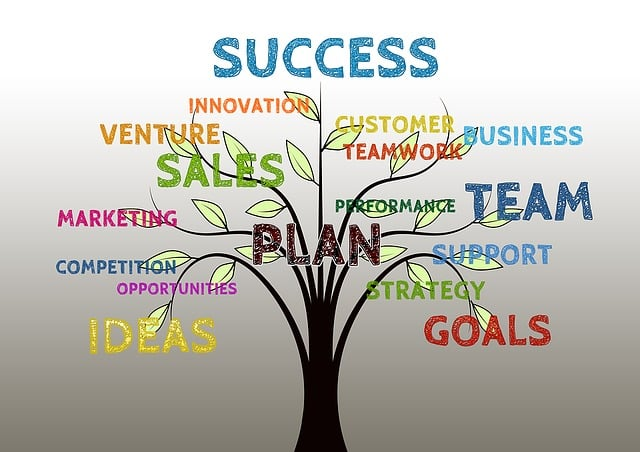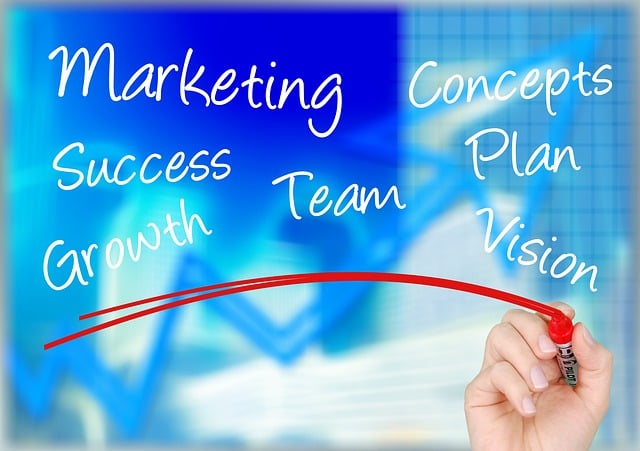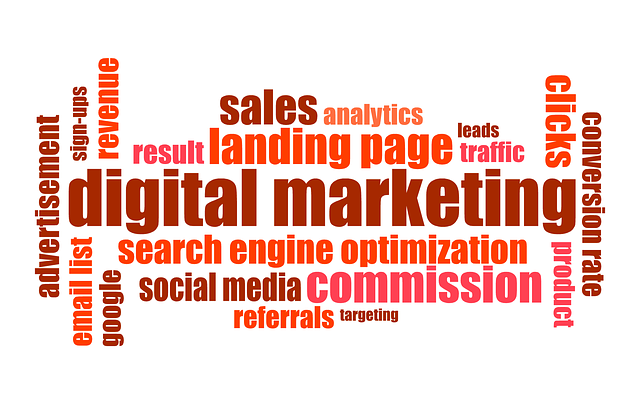From all types of marketing, it’s growth marketing that captures the essence of modern, dynamic business strategies. This approach transcends traditional marketing boundaries, focusing on the entire customer journey to drive sustainable growth.
Growth marketers employ a variety of tactics, from search engine optimization to influencer marketing, to engage not just new customers but also to deepen relationships with existing ones.
The goal is to create a holistic marketing plan that evolves with customer feedback and market trends, ensuring long-term success.
What is Growth Marketing
Growth marketing is an innovative marketing strategy that focuses on driving sustainable growth across the entire customer lifecycle.
It involves a mix of traditional marketing efforts and growth hacking techniques, emphasizing data-driven decision-making, A/B testing, and personalized customer experiences. Growth marketers aim to increase customer lifetime value and retention through continuous experimentation and adaptation, leveraging tools like email marketing, content marketing, and referral programs.

This approach is not just about acquiring new users but nurturing them into loyal, engaged customers, thereby maximizing the overall impact on the business’s growth.
Growth Marketing vs Traditional Marketing

1. Focus on the Entire Customer Journey vs. Specific Marketing Funnel Stages
Growth marketing encompasses the entire customer journey, from awareness to advocacy. Growth marketers use a holistic approach, integrating tools like email marketing, A/B testing, and customer feedback to enhance the customer experience at every stage.
Traditional marketing, in contrast, often focuses on specific stages of the marketing funnel, such as awareness and acquisition, without always considering the long-term customer lifecycle.
2. Data-Driven Customization vs. Broad-Target Strategies
Growth marketing is heavily reliant on data and analytics. Successful growth marketers scrutinize customer data, past behavior, and engagement metrics to tailor their strategies.
This data-driven approach allows for more personalized marketing efforts, unlike traditional marketing, which tends to use broader, less personalized strategies like mass media campaigns and general paid advertising.
3. Emphasis on Experimentation and Adaptability
Growth marketing is characterized by constant experimentation. Growth marketers test new ideas, from landing page designs to email marketing tactics, to see what resonates best with their audience.
This contrasts with traditional marketing, which often relies on established, time-tested strategies and is less inclined towards rapid experimentation and adaptation.
4. Integration of New Technologies and Channels
Growth marketing strategies are often at the forefront of integrating new technologies and marketing channels. From utilizing AI for better customer insights to leveraging influencer marketing and push notifications, growth marketing is more adaptive to new platforms and technologies.

Traditional marketing may incorporate these elements but usually at a slower pace and to a lesser extent, often relying more on conventional channels like direct mail and broadcast media.
How to Build a Growth Marketing Strategy

1. Define Clear Growth Objectives
A successful growth marketing strategy begins with clearly defined objectives. Growth marketers must identify specific goals, whether it’s increasing customer acquisition, enhancing customer retention, or boosting conversion rates. These objectives should align with the overall business goals and provide a focused direction for all growth marketing campaigns.
2. Understand Your Target Audience
Understanding your target audience is crucial for any growth marketing team. This involves analyzing customer data to identify the needs, preferences, and behaviors of both potential and existing customers. A growth marketer must develop a deep understanding of the target audience to tailor marketing strategies effectively, ensuring they resonate with the intended demographic.

3. Utilize Data-Driven Insights
Growth marketing is heavily reliant on data. Successful growth marketers continuously gather and analyze data to inform their strategies. This includes tracking user acquisition, engagement metrics, and customer feedback. By leveraging this valuable data, growth marketing teams can make informed decisions and adapt their strategies for better results.
4. Implement A/B Testing
A/B testing is a cornerstone of growth marketing. It allows marketers to experiment with different elements of their campaigns to determine what works best. Whether it’s testing email marketing subject lines, landing page designs, or in-app messages, A/B testing provides insights that help refine the marketing approach and improve customer experience.
5. Focus on the Entire Customer Journey
Growth marketing encompasses the entire customer journey, from awareness to advocacy. This holistic approach ensures that every touchpoint is an opportunity for growth. Growth marketers focus on creating a seamless and engaging journey for customers, enhancing their experience at every stage to foster loyalty and repeat purchases.

6. Leverage Multichannel Marketing
Successful growth marketing campaigns often utilize multiple channels to reach and engage the target audience. This could include email marketing, social media, content marketing, and more. By employing a multichannel approach, growth marketers can reach a wider audience and drive growth more effectively.
7. Foster Customer Retention and Loyalty
While acquiring new customers is important, retaining existing ones is equally crucial. Growth marketing strategies should include efforts to keep customers engaged and loyal. This can be achieved through personalized communication, loyalty programs, and providing exceptional customer service.
8. Encourage Referrals and Word-of-Mouth
Referral programs can be a powerful tool for growth marketers. Encouraging satisfied customers to refer new users can lead to organic growth and build a loyal customer base. Successful growth marketers understand the value of word-of-mouth and leverage it to drive growth.

9. Experiment with Growth Hacking Techniques
Growth hacking involves using creative, low-cost strategies to acquire and retain customers. Growth marketers often experiment with innovative growth hacking techniques to find new ways to drive growth. This could include viral marketing campaigns, influencer collaborations, or unique content strategies.
10. Build a Collaborative Growth Marketing Team
A successful growth marketing strategy requires a collaborative team effort. This includes a mix of skills from different areas, such as SEO experts, content creators, data analysts, and more. A growth marketing manager should foster a team environment where ideas can be shared and new strategies developed collaboratively.
11. Continuously Evaluate and Adapt
The digital marketing landscape is constantly evolving, and so should growth marketing strategies. Growth marketers must continuously evaluate the effectiveness of their campaigns and be ready to adapt to new trends and technologies. This could mean adopting new marketing channels, experimenting with different messaging, or leveraging new data sources.

Differences between Growth Marketers and Regular Marketers
1. Approach to the Customer Journey
Growth marketers focus on the entire customer journey, from initial awareness to long-term loyalty. They employ strategies that address every stage of this journey, ensuring a cohesive and integrated experience for the customer.
Regular marketers, on the other hand, may concentrate more on specific stages of the journey, such as acquisition or awareness, without always considering the full spectrum of customer engagement.
2. Use of Data and Analytics
Successful growth marketers are heavily data-driven, relying on analytics to guide their strategies and decisions. They constantly gather and analyze more data to understand their target audience and measure the effectiveness of their campaigns.
Regular marketers might use data, but often not to the same extent or depth as growth marketers, who use data as the cornerstone of their strategy.
3. Emphasis on Growth Hacking Techniques
Growth hacking is a hallmark of growth marketers. They use creative, cost-effective growth hacking methods to rapidly test and scale marketing strategies.
This approach is less common among regular marketers, who may adhere more to traditional marketing methods and may not employ the same level of experimentation and agility found in growth hacking.
4. Orientation Towards Sustainable Growth
Growth marketers are typically focused on driving sustainable growth for the business. Their strategies are designed not just for short-term gains but for long-term success, often incorporating elements like customer retention and lifetime value.
Regular marketers might focus more on immediate results, such as campaign-specific ROI or short-term sales boosts, without always aligning with a long-term growth strategy.
5. Content Marketing Approach
In content marketing, growth marketers often take a more targeted and strategic approach, crafting content specifically designed to engage and convert their defined target audience at various stages of the customer journey.

Regular marketers may also use content marketing, but their approach might be more general, focusing on broader brand messaging rather than content tailored to drive growth at each stage of the funnel.
6. Product-Centric Marketing
Growth marketers tend to be more product-focused in their marketing strategies. They align their efforts closely with the product’s features, benefits, and user experiences, ensuring that marketing messages are tightly integrated with what the product offers.
Regular marketers may not always have such a deep focus on the product, often working on broader brand-level strategies that are not as intimately tied to the specifics of the product.
How to Become a Growth Marketer
Growth marketers are dynamic professionals specializing in developing and implementing strategies to drive business growth. They focus on identifying and engaging potential customers, retaining loyal customers, and optimizing the customer journey.
These marketers blend traditional marketing skills with growth hacking techniques, leveraging data to inform their strategies and experimenting with innovative approaches to maximize results.
Step 1: Understand the Basics of Growth Marketing
To become a successful growth marketer, start by understanding the fundamentals of growth marketing. This includes learning about different growth strategies and how they contribute to a successful growth marketing campaign.
Familiarize yourself with various growth marketing examples and focus areas, such as customer acquisition and retention, to get a comprehensive view of the field.

Step 2: Develop a Data-Driven Mindset
Data is at the heart of growth marketing. Aspiring growth marketers should become adept at analyzing and interpreting data to make informed decisions.
This involves understanding customer behaviors, website visitors’ interactions, and market trends. The ability to extract insights from data is crucial for developing effective growth strategies.
Step 3: Acquire T-Shaped Marketing Skills
A ‘T-shaped marketer’ has a broad knowledge base with deep expertise in one or more specific areas.
To become a successful growth marketer, develop a wide range of marketing skills while specializing in key areas like SEO, content marketing, or data analysis.
This versatility allows you to approach growth marketing from multiple angles.

Step 4: Learn Growth Hacking Techniques
Growth hacking is an integral part of growth marketing. It involves using creative, low-cost strategies to acquire and retain customers quickly. Aspiring growth marketers should learn various growth hacking techniques and how they can be applied to different stages of the customer journey.
Step 5: Gain Practical Experience
Hands-on experience is invaluable. Work on real projects, whether through internships, freelance work, or your own initiatives.
Implementing growth strategies and being involved in successful growth marketing campaigns provides practical knowledge and skills that are crucial for a career in growth marketing.

Step 6: Stay Updated with Industry Trends
The digital marketing landscape is constantly evolving. To be among the best growth marketers, it’s important to stay updated with the latest trends, tools, and technologies.
This continuous learning helps in adapting long-term strategies to the ever-changing market conditions for growth hacker and growth marketing focuses.
Step 7: Focus on Customer-Centric Strategies
Growth marketing is heavily customer-focused. Develop strategies that not only attract potential customers but also turn them into loyal customers. This involves understanding the customer lifecycle, engaging with them through personalized marketing, and exploring cross-selling opportunities.
Step 8: Embrace a Product-Focused Approach
Finally, successful growth marketers often have a deep understanding of the products they are marketing. A product-focused approach involves knowing the ins and outs of the product, how it meets customer needs, and using this knowledge to inform your growth strategies on Facebook.
This approach ensures that marketing efforts are aligned with the product’s unique value proposition.




